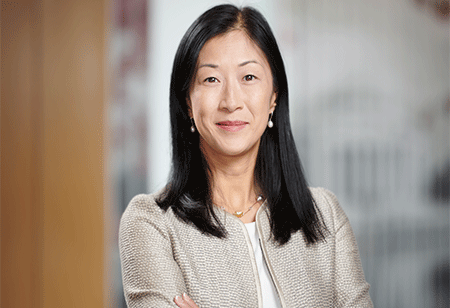
In conversation with Prisila, Correspondent, Asia Business Outlook Magazine. Sharon expressed her thoughts on several pivotal elements contributing to Singapore's renown as a prime center for startups and entrepreneurial activities.
Sharon Chan, with over two decades of experience across various functions, Sharon is a well-known industry leader in the Asia-Pacific healthcare sector. Prior to joining Johnson & Johnson in 2018, she has successfully managed key roles across companies such as Aeras, Baxter Healthcare and Sosei. Additionally, she was also the Founding Member of the Technology & Innovation Committee at The British Chamber of Commerce, Shanghai and currently serves as one of the Board of Directors with Right 2 Thrive.
Give us a few reasons why biopharma startups are increasingly seeking collaboration with other strategic partners in the healthcare and life sciences ecosystem.
The life sciences industry is one of the fastest growing sectors in Singapore and the APAC region. Many biopharma startups are very eager to transform the healthcare landscape by delivering innovative medtech and pharma solutions. However, since many of these are young, early-stage companies, they face a variety of business, financial and operational challenges. To overcome these hassles, biopharma innovators collaborate with incubators in the healthcare and life science ecosystem to help advance their early-stage discoveries into breakthrough medical discoveries by leveraging the expertise, funding and educational programs & facilities that they need.
While the healthcare industry also faces a myriad of challenges, it is only through partnerships and collaborations that we can tackle those hurdles and maximize the impact of our efforts.
Briefly explain the impact of regulatory and legal frameworks on collaborative efforts in the biopharma sector in Asia-Pacific.
Over the last five years, most of the local governments in the Asia-Pacific region have launched favorable policies and regulatory frameworks to support healthcare and accelerate drug development in the local markets. These initiatives have contributed immensely towards enhancing the collaborations within the industry. Governments are showcasing their strong commitment to accelerating R&D. For example, the Healthy China 2030 strategy was launched to address ageing population needs, cutdown the approval time limit for innovative pharmaceutical products, to accelerate their market access, and to incorporate innovative drugs into medical insurance systems, just to name a few. As a result, South-East Asia has emerged as a leading innovation hub in recent times, with Singapore emerging as the leading tech hub in the region. While the healthcare industry also faces a myriad of challenges, it is only through partnerships and collaborations that we can tackle those hurdles and maximize the impact of our efforts.
How do collaborations contribute to the growth and sustainability of biopharma startups?
When healthcare startups opt to collaborate with strategic healthcare partners, they are creating opportunities for venture and talent development offerings that stimulate employment and commercialization of their business. These early innovators can leverage the network of investors, corporate partners, resources and facilities offered by the incubators to evolve to the next level and make novel scientific breakthroughs that would have a massive impact across the world. This will advance the thriving life sciences community in Asia and unleash the potential of healthcare innovation in the Asia-Pacific region. Also, the groundbreaking pharma and medtech findings have the potential to address the healthcare needs of people of all age groups and demographics.
"Most of the local governments in the Asia-Pacific region have launched favorable policies and regulatory frameworks to support healthcare and accelerate drug development in the local markets."
What are some of the key factors that have led to Singapore’s reputation as a regional hub for startups and entrepreneurship?
Today, Singapore has cemented its position as a collaborative partner-of-choice in the world due to the country’s position as a leading centre of innovation & entrepreneurship in Asia-Pacific and the strong support from Singapore’s Economic Development Board (EDB). Also, the strong foundation in innovative science and coordinated clinical research has positioned the government of Singapore as a very highly efficient source for translating data. Further, owing to its reputation as the key business and financial hub in the region, the country has developed a strong reputation as the perfect breeding ground for startups over the last decade. There is an increasing number of foreign tech startups that are leveraging their branches in Singapore to scale their business overseas.
What is your advice to future healthcare leaders to stay agile and relevant in this ever-evolving industry?
Be open to change and make sure to adapt as quickly as possible. Collaborate and work closely with industry stakeholders to enhance the efficiency of the overall healthcare ecosystem. I would also advise leaders to focus more on accelerating the development of science for transforming innovative ideas into commercially viable solutions by leveraging cutting-edge technologies like AI.
We use cookies to ensure you get the best experience on our website. Read more...